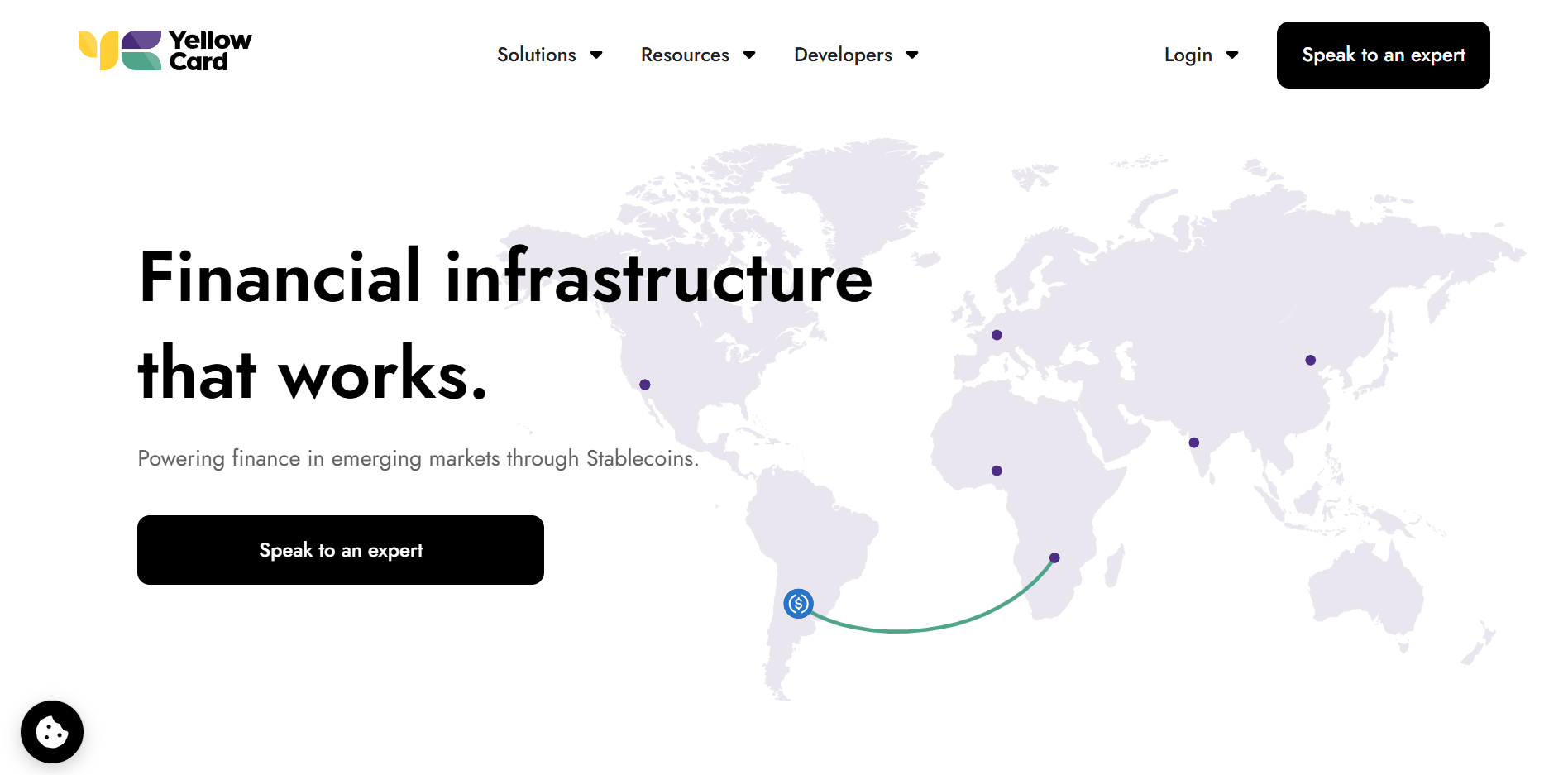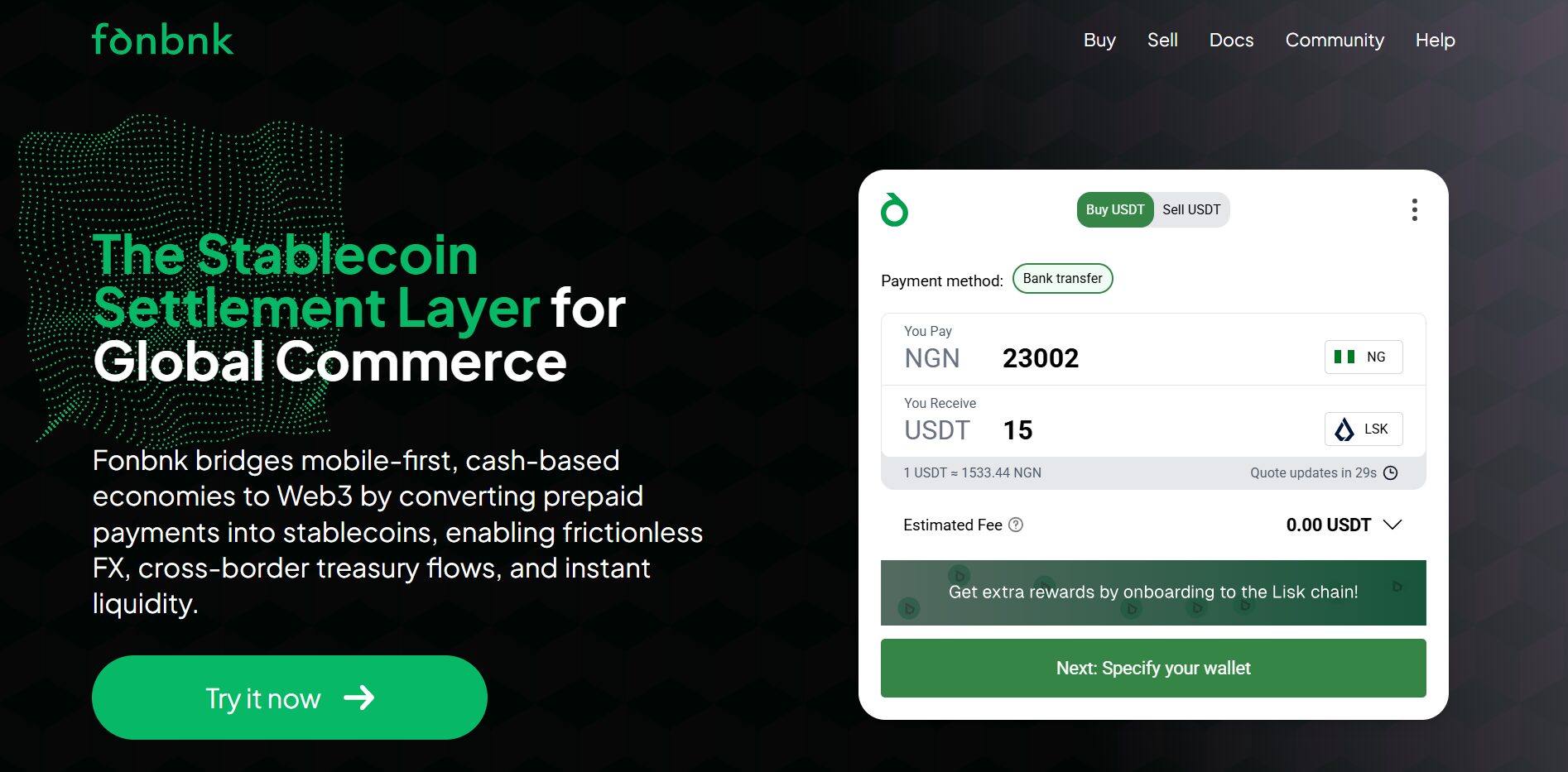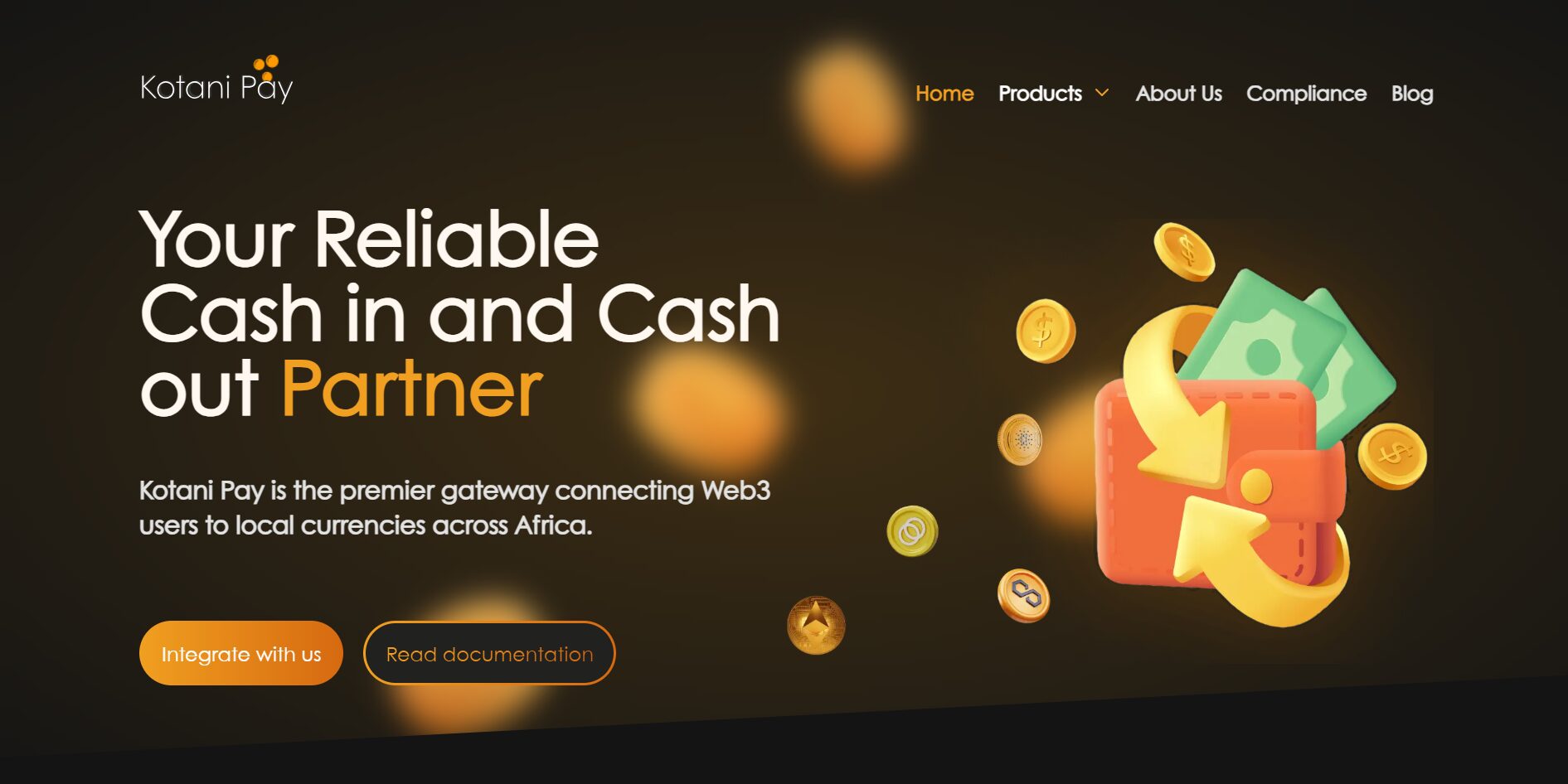Africa has develop into a worldwide chief in cell cash and one of many fastest-growing areas for cryptocurrency adoption. From Kenya’s M-Pesa to Nigeria’s vibrant peer-to-peer crypto markets, the continent has proven a robust grasp of the advantages of decentralised digital programs. But, with regards to decentralized finance (DeFi), Africa nonetheless trails behind, held again by restricted consciousness, regulatory uncertainty, and infrastructural boundaries.
Regardless of DeFi’s potential to unlock borderless lending, yield alternatives, and monetary inclusion, its development in Africa has been gradual.
Let’s dig into the present position of DeFi in Africa and what it must succeed on the continent.
The Promise of DeFi for Africa
The issue of economic exclusion in Africa is deep and continual; greater than 350 million unbanked Africans dwell on the continent. Conventional banks usually require documentation that many voters don’t have, making even primary monetary providers out of attain. Consequently, hundreds of thousands are left with out entry to financial savings, credit score, or protected methods to switch cash.
The rise of cell cash programs like M-Pesa in Kenya reveals that Africans are each keen and in a position to embrace digital finance. M-Pesa’s success in facilitating on a regular basis monetary transactions by means of cellphones highlights the robust demand for easy, accessible monetary providers.
DeFi is continuous that momentum by giving us a brand new wave of economic providers, that are decentralized, open to everybody, and programmable. DeFi in Africa would create alternate options to costly remittance charges, inaccessible loans, and unreliable financial savings fashions.
As crypto adoption in Africa grows, a few of the real-world functions already taking form are peer-to-peer lending by means of blockchain platforms, yield farming, stablecoin financial savings to hedge towards the volatility of currencies, and tokenization of belongings into manageable and fractionalized parts.
Key Limitations to DeFi Adoption in Africa
Though Africa is eager on crypto and cell finance, there are just a few hiccups that deter the continent from absolutely embracing decentralized finance and crypto adoption by nation.
Infrastructure gaps
Entry to dependable web and digital gadgets remains to be restricted in lots of components of Africa, particularly in distant and underserved areas. Web connectivity is usually unstable, and plenty of DeFi apps require fixed entry. As well as, smartphone protection stays low in some areas, additional limiting participation.
Even in areas the place gadgets can be found, DeFi apps that require excessive bandwidth will be pricey as a consequence of costly information charges. On high of that, frequent energy outages and restricted entry to reasonably priced electrical energy in some African international locations stay main boundaries to widespread crypto adoption in Africa.
Regulation and authorized uncertainty
The absence of concrete authorized frameworks is without doubt one of the points discouraging the usage of DeFi in Africa. Some governments are fearful or hostile in direction of crypto adoption in Africa. For instance, in Kenya and Zimbabwe, central banks not too long ago issued warnings towards the usage of cryptos, and in Nigeria, banks had been briefly banned from utilizing them.
This uncertainty discourages builders from constructing, scares away buyers, and creates concern amongst customers who fear about authorized penalties or having their funds blocked.
Lack of localized platforms
Most current DeFi protocols are designed for customers within the World North. They usually have English-only interfaces, lack help for native African currencies, and provide poor integration with well-liked cell cash programs like M-Pesa or MTN Cell Cash.
Consequently, customers face a number of UX challenges, from difficulties changing fiat to crypto to navigating DeFi with out custom-made onboarding experiences tailor-made to the African context. The dearth of native fiat on- and off-ramps and region-specific instruments makes DeFi tough to entry and use successfully.
Schooling and digital literacy
Though the adoption of cryptocurrency and consciousness are rising amongst Africa’s younger inhabitants, DeFi nonetheless feels technical and intimidating to many. Customers usually wrestle with advanced ideas like liquidity provision, yield farming, and pockets seed phrases.
Widespread mistrust in speculative finance, fueled by a historical past of scams and rug pulls, has additional broken confidence in DeFi platforms. The hole between DeFi’s promise and real-world utilization persists, primarily as a result of there’s no large-scale digital literacy initiative or trusted native influencers serving to individuals perceive the dangers and advantages in easy phrases.
READ ALSO: Is Africa Quietly Changing into the Actual Testbed For Blockchain’s Future?
The Street to Closing the DeFi Hole
The potential of DeFi in Africa can solely be unlocked when the builders, regulators, and communities construct programs that finest match the native realities slightly than import/copy fashions.
Construct for Africa, not simply in Africa
Many DeFi platforms are nonetheless designed with Western audiences in thoughts. As an alternative, builders ought to give attention to constructing for African customers, providing interfaces in native languages, mobile-friendly UX, and apps that use minimal information.
The strategy should be mobile-first. Not everybody owns a smartphone, so compatibility with characteristic telephones and even SMS-based DeFi providers might assist develop entry.
By connecting stablecoin providers with cell cash platforms like M-Pesa, Airtel Cash, or MoMo Pay, hundreds of thousands of Africans might entry DeFi with out counting on centralized exchanges.
Regulatory collaboration and sandboxes
As an alternative of pushing DeFi into authorized grey areas, African international locations might collaborate with innovators by means of regulatory sandboxes, managed environments that permit for the protected testing of blockchain applied sciences. Kenya, South Africa, and Ghana are already exploring extra progressive frameworks.
Nevertheless, broader progress would require regional cooperation. Organizations just like the African Union might play a significant position in creating cross-border requirements that stability innovation with efficient monetary oversight.
Schooling as infrastructure
No quantity of expertise issues if customers don’t know the way to function it safely. That’s why schooling must be handled as important infrastructure. DeFi should be simplified into culturally relatable items, utilizing native languages and storytelling by means of community-driven efforts.
Broader consciousness will be achieved by means of collaboration with NGOs, faculties, fintech startups, and trusted native influencers. Sensible expertise for the following era of African DeFi customers and builders will be developed by means of DeFi bootcamps and monetary literacy hubs.
Constructing belief by means of community-led protocols
Belief is a serious forex in Africa, and a community-based mannequin might assist bridge the hole between conventional finance and DeFi. For instance, DAOs and protocols that mimic acquainted trust-based programs, like village financial savings teams (ROSCAs or SUSUs), can convey established belief mechanisms into the digital house.
Clear good contracts, lending swimming pools managed by the neighborhood, and verifiable audits will even create confidence. Additionally, native validator networks can preserve governance near the individuals most affected by the outcomes.
ALSO READ: Which African Nation is Poised to Lead the Crypto Revolution?
Who’s Main the Cost? African Builders to Watch
Regardless of infrastructure and regulatory points, extra African startups and worldwide companions are laying the groundwork to convey DeFi in Africa right into a affluent, self-sustaining state that serves the continent’s wants.
Yellow Card

Yellow Card is without doubt one of the largest cryptocurrency exchanges in Africa, working in over 20 international locations. It permits customers to entry digital belongings utilizing native fiat currencies, financial institution transfers, and cell cash programs.
The platform emphasizes compliance and person schooling, making it a safe gateway for comparatively new crypto customers in Africa. They’re additionally exploring stablecoin infrastructure to make the adoption of cryptocurrency and cross-border funds seamless.
Fonbnk

Fonbnk permits customers to transform cell airtime into cryptocurrency, successfully turning pay as you go cellphone minutes into digital cash. This innovation is particularly helpful in international locations the place pay as you go airtime is extra frequent than conventional financial institution accounts. By tokenizing cell credit, Fonbnk opens the door to DeFi entry for individuals with out financial institution accounts.
Kotani Pay

Kotani Pay connects blockchain expertise with cell cash, permitting customers to entry crypto by way of USSD, even and not using a smartphone or web connection. This makes DeFi and blockchain providers accessible to hundreds of thousands of individuals in rural areas.
The corporate works with charities and DAOs to ship help by way of stablecoins, that are despatched on to native cell wallets. It serves as a robust instance of how DeFi will be scaled to advertise monetary inclusion.
Mara

With Coinbase Ventures and Alameda Analysis on the helm, Mara is constructing a crypto stack in Africa, together with faculties and infrastructure. Customers obtain the Mara Pockets to buy and retailer digital belongings. Additionally, the Mara Basis helps builders by nurturing native expertise in Web3 and DeFi.
World Protocols Making Native Inroads
A number of world blockchain platforms are additionally partaking straight with African communities:
Celo: With its mobile-first design and partnerships just like the Alliance for Prosperity, Celo has targeted on launching pilots in Kenya and Uganda for peer-to-peer funds and microloans.Close to Protocol: NEAR’s Africa Regional Hub helps native builders, academic applications, and community-led DeFi tasks with grants and technical assets.Cardano (Enter Output World): Cardano has invested in academic partnerships and blockchain ID options in Ethiopia, specializing in government-level adoption and long-term infrastructure.
Africa’s DeFi Second Is Coming, However Received’t Be Automated
The distinctive monetary atmosphere and the dire want for decentralized and inclusive monetary devices are why Africa might develop into a world chief in decentralized finance. With greater than 350 million unbanked adults, excessive cell cash adoption, and rising curiosity within the adoption of cryptocurrency, the weather are already right here.
But expertise shouldn’t be adequate. To achieve continental DeFi, creators must cease following the West’s instance. They have to devise platforms that can take into accounts the realities of Africa, together with poor entry to the web, regulatory inconsistencies, a fragmented monetary system, and unequal ranges of digital literacy.
Africa’s DeFi future gained’t be imported; it must be invented. Supplied that the ecosystem is concentrated on the precept of localization, regulatory collaboration, and the empowerment of customers, it might leap forward and redefine what really inclusive finance seems to be like within the Web3 period.
Disclaimer: This text is meant solely for informational functions and shouldn’t be thought-about buying and selling or funding recommendation. Nothing herein must be construed as monetary, authorized, or tax recommendation. Buying and selling or investing in cryptocurrencies carries a substantial threat of economic loss. At all times conduct due diligence.
If you need to learn extra articles like this, go to DeFi Planet and comply with us on Twitter, LinkedIn, Fb, Instagram, and CoinMarketCap Neighborhood.
Take management of your crypto portfolio with MARKETS PRO, DeFi Planet’s suite of analytics instruments.”








